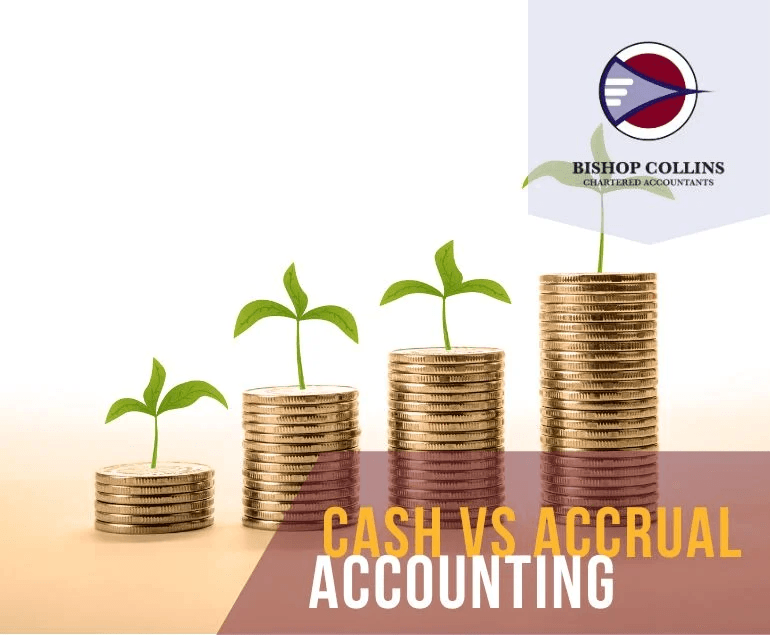Warren Buffett, the legendary investor, once remarked, “Accounting is the language of business.” In the context of cash and accrual accounting, this quote underscores the essential role that accounting plays in conveying a company’s financial reality. Cash accounting speaks to the immediate availability of cash resources, while accrual accounting speaks to the broader economic activities that shape a company’s financial position.
In the realm of financial accounting, cash accounting and accrual accounting form the bedrock upon which businesses measure their economic activities and report financial performance. Each methodology offers distinct insights into a company’s financial position and transactions. This article will cover the nuances of cash and accrual accounting, unravelling their differences, benefits, and limitations. So, let’s unpack the difference between accrual and cash accounting.
 Cash Accounting: A Snapshot of Present Finances
Cash Accounting: A Snapshot of Present Finances
Imagine a quiet moment frozen in a bustling city, a snapshot capturing the essence of a vibrant street. Cash accounting, in the realm of finances, operates much the same way – freezing financial transactions into a single frame that represents a company’s immediate monetary movements. It’s like catching a single raindrop in mid-air amidst a storm of economic activities.
At its core, cash accounting is a pragmatic approach that revolves around actual cash inflows and outflows. When revenue comes knocking at the door in the form of tangible cash, it’s recorded as earned. Similarly, when expenses depart from the coffers, they’re noted as paid. This approach creates a clear depiction of a company’s liquidity and its aptitude in handling immediate financial responsibilities.
Pros of Cash Accounting: Uncomplicated Financial Insights
1. Simplicity: Easy Passage to Financial Clarity
For small businesses, especially those stepping into the realm of entrepreneurship for the first time, the allure of simplicity is magnetic. Cash accounting offers a straightforward approach that doesn’t demand an advanced degree in accounting to comprehend. The absence of intricate rules and elaborate procedures means that you can focus on the growth and prosperity of your business.
With cash accounting, financial reporting becomes a breeze. It minimises the complexities of accounting and translates them into an easily understood language. Small business owners can navigate through their financial data without getting entangled in the jargon, effortlessly grasping the inflows and outflows that shape their financial journey.
2. Immediate Tracking: Capturing the Rhythm of Transactions
In the realm of finances, timing can be everything – like capturing the exact moment a wave kisses the shore. Cash accounting offers this sense of immediacy, allowing you to record transactions as they occur. Picture it as a synchronised dance between your business and its financial activities, each step leaving a trace in the sands of your financial records.
The advantage of immediate tracking extends beyond mere record-keeping; it’s a tool for strategic decision-making. When a payment arrives from a customer, it’s recorded promptly. Similarly, when expenses are paid, they’re immediately noted. This real-time tracking ensures that your financial dashboard remains up-to-date, allowing you to gauge your business’s cash position at any given moment. Cash accounting becomes your financial GPS, providing accurate coordinates of your business’s financial journey.
Cons of Cash Accounting: The Shadows in Simplicity
1. Incomplete Picture: Ignoring the Symphony of Obligations
Cash accounting offers simplicity, but with it comes a trade-off – the sacrifice of a complete financial portrait. Imagine standing in front of a grand masterpiece, but only seeing a fraction of its intricate details. Similarly, cash accounting provides a snapshot of your business’s financial moment, but it can cast shadows over crucial aspects that shape its destiny.
The complexity of business extends beyond the immediate inflows and outflows of cash. It involves a symphony of obligations that resonate beyond the present moment. While cash accounting captures the stars of the financial show, it often leaves the supporting cast hidden behind the curtain. Long-term commitments, future debts, and impending expenses remain backstage, waiting for their cue. This is a key difference between accrual and cash accounting that must be considered.
2. Timing Mismatch: When Notes Fall Out of Tune
Picture yourself conducting an orchestra, each note resonating in perfect harmony. Now, envision one section of the orchestra playing out of sync – a discordant note that disrupts the entire composition. Cash accounting, in its pursuit of simplicity, can sometimes introduce a timing mismatch, creating dissonance between revenue recognition and the actual delivery of goods or services.
In the realm of business, revenue is often earned before the curtain rises on the performance. Cash accounting might record this revenue upfront, creating a discordant note between the cash inflow and the actual service provided.
This timing mismatch can lead to distorted financial performances, like a symphony with intermittent off-key notes. The financial reports may showcase peaks and valleys that don’t align with the business’s operational reality. Such inconsistencies can complicate accurate trend analysis, obscuring insights that are vital for strategic planning and decision-making.
 Accrual Accounting: A Holistic View of Financial Realities
Accrual Accounting: A Holistic View of Financial Realities
In contrast, accrual accounting provides an expansive vista of a company’s financial terrain. It acknowledges revenues upon their earned status and expenses as they are incurred, regardless of cash flow considerations. This is a major difference between accrual and cash accounting in that this approach provides a more comprehensive understanding of a business’s financial activities.
Pros of Accrual Accounting: Painting a Comprehensive Financial Landscape
1. Holistic Picture: Illuminating the Financial Horizon
Accrual accounting goes beyond the instant snapshot of cash movements and delves into the intricate tapestry of a business’s financial story. It’s like stepping back from a canvas to appreciate the entire masterpiece, each brushstroke contributing to the grand narrative. With accrual accounting, the focus shifts from the immediate cash flow to encompass the broader canvas of current and future financial obligations. This holistic perspective offers a clearer vantage point for decision-making.
2. Matching Principle: Weaving Threads of Financial Synchrony
In the realm of business, revenue and expenses dance in a delicate choreography. Accrual accounting, with its matching principle, ensures that this dance is harmonious and synchronised. It’s akin to a skilled conductor orchestrating a symphony, ensuring that each instrument plays its part at the right time. This principle aligns revenues with their associated expenses, creating a clear link between cause and effect.
Let’s use a manufacturing company as an example. When a product is produced, accrual accounting captures not only the cost of materials and labor but also the indirect costs, like depreciation of machinery or rent for the production facility. These expenses are matched against the revenue generated when the product is sold. This synchronisation provides a precise calculation of the profit earned from each sale, offering insights into the actual profitability of the business’s endeavors.
Cons of Accrual Accounting: Navigating Complexity and Timing
Complexity: Unveiling the Layers of Financial Interpretation
While accrual accounting unveils a more complete financial tapestry, its intricate threads can sometimes lead to a complex weave. This is where we hit another major difference between cash and accrual accounting. The inclusion of non-cash items and the necessity to estimate unearned revenue and incurred expenses add layers of sophistication to the accounting process.
Consider a construction project where services are provided over several months. Accrual accounting requires estimating the proportion of work completed and recognising the corresponding revenue even before the final invoice is settled. While this precision enhances financial reporting, it can also introduce complexity.
However, complexity doesn’t necessarily equate to chaos. Just as a complex dance routine showcases a dancer’s skill and artistry, navigating the complexities of accrual accounting highlights a business’s financial acumen. It’s a testament to a company’s ability to decipher intricate financial movements and present them as a cohesive narrative.
Delayed Insight: Timing and Decision-making
In the realm of business, timing is often the conductor that orchestrates operational decisions. Accrual accounting introduces a subtle delay in reflecting cash movements, which could impact short-term decision-making.
This symphony of timing can sometimes lead to a dissonance between cash movements and financial reporting. A business might have a successful month in terms of sales but face cash shortages due to delayed payments. Accrual accounting’s delayed insight could impact short-term operational decisions, prompting businesses to fine-tune their cash flow management strategies.
It’s important to note that this delay doesn’t undermine the accuracy of accrual accounting – it simply adds a layer of nuance to the rhythm of financial reporting. Just as a symphony’s timing creates suspense and anticipation, accrual accounting’s delayed insight prompts businesses to harmonise their cash flow orchestration.
In essence, the cons of accrual accounting showcase the multifaceted nature of financial interpretation. Complexity and timing intricacies are not roadblocks; they are pathways to a more sophisticated understanding of a business’s financial symphony. Embracing these nuances allows companies to navigate revenue and expenses with finesse and precision.
Comparative Analysis: Timing Makes All the Difference
The key difference between accrual and cash accounting is all about the timing of revenue and expense recognition. Cash accounting emphasises actual cash inflows and outflows, focusing on the present moment. Accrual accounting, on the other hand, captures economic events as they occur, regardless of cash movements, painting a more comprehensive and forward-looking financial picture.
Imagine cash accounting as a pie-eating contest: you only count the pies you’ve already swallowed, ignoring the ones you’ve ordered but haven’t devoured yet. Accrual accounting, on the other hand, is like being a pie-eating contestant and recording a pie as consumed the moment you order it – before you’ve even tackled the first bite. It’s a bit like predicting your fullness level based on your eating ambitions!
 Expert Guidance Matters
Expert Guidance Matters
Understanding the difference between cash and accrual accounting must be achieved by looking in two distinct lenses through which businesses interpret and communicate their financial story. Cash accounting is akin to viewing a single frame of a movie, while accrual accounting provides the entire narrative. Both methodologies have their merits and drawbacks, making the choice between them a reflection of a company’s size, industry, and strategic goals.
When faced with the choice between cash and accrual accounting, seeking guidance from a skilled accountant becomes paramount. At Bishop Collins, we offer tailored consultations that delve into your unique circumstances. Our experts will not only elucidate the disparities between accrual and cash accounting but also provide personalised recommendations for your business. Contact us today and embark on a path of informed financial decisions.





 Cash Accounting: A Snapshot of Present Finances
Cash Accounting: A Snapshot of Present Finances Accrual Accounting: A Holistic View of Financial Realities
Accrual Accounting: A Holistic View of Financial Realities Expert Guidance Matters
Expert Guidance Matters